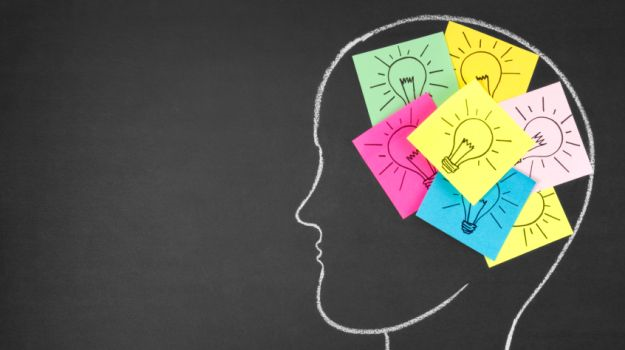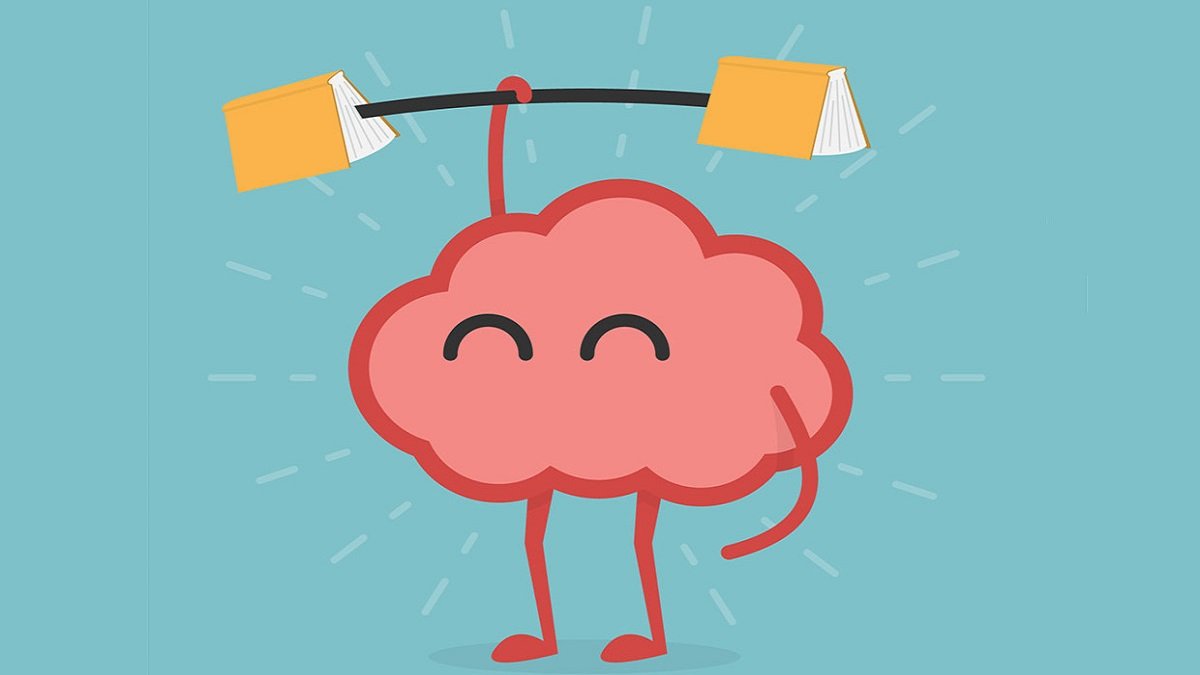As you get older, changes to your body and brain are common. You may, however, take a few ways to boost your brain power to help slow down any memory loss and reduce your chance of getting dementia, including Alzheimer’s disease.
Put your intellect to use or lose it. As we age, changes occur in our brains that also affect mental performance. As one of the most dreaded effects of aging, mental deterioration is common. However, cognitive decline is not always the result. Living a long and fulfilling life depends on maintaining the health of your brain.
How To Boost Your Brain Power

1. Exercise
Exercise is one of the ways to boost your brain power. Wheeled mice have more neurons in their hippocampal regions and exhibit improved learning and memory in tests. Exercise helps enhance the brain’s executive functions, which include organizing, multitasking, planning, and more, according to studies on humans.
Exercise is also widely recognized for improving mood, and older adults who exercise have a lower risk of developing dementia. Physically active seniors have higher executive function than sedentary ones; even those who have lived life on the sofa might enhance these functions just by beginning to walk more throughout their golden years.
This cognitive enhancement might be caused by many different processes. Exercise improves blood flow to the brain, which helps the brain’s hardworking neurons get more oxygen, fuel, and nutrition.
Exercise has been shown to raise levels of a chemical called brain-derived neurotrophic factor (BDNF), which promotes the survival, development, and communication of neurons. Naturally, none of this study contributes to the understanding of stupid jokes.
2. Proper Diet
Fuel is necessary for both the body and the intellect. What, then, will increase your mental capacity, and what will drive you insane? The well-known offender, saturated fat, has no beneficial effects on the brain or body. Humans who consume diets heavy in saturated fat seem to be more susceptible to dementia, and rats on these diets fared worse on tests of learning and memory.
But not all fat is harmful. Since the brain is primarily made of fat (fatty acids are needed for all those cell membranes and myelin coatings), it’s critical to consume specific fats, especially omega-3 fats, which are found in nuts, seeds, and seafood. Hypoxic acidemia may be linked to depression, schizophrenia, Alzheimer’s disease, and other illnesses.
Superfoods for the brain also seem to include fruits and vegetables. Antioxidants, which fight atoms that might harm brain cells, are abundant in produce. High-antioxidant diets have been shown to prevent brain damage after strokes and even preserve learning and memory in aged rats. That deserves some thinking.
3. Play Games
Playing games can be among the tips to boost your brain power. Your life might be saved by video games. One-third fewer mistakes are made in the operating room by surgeons who play video games for at least a few hours each week than by those who don’t. Video games have been shown to enhance mental dexterity as well as hand-eye coordination, depth perception, and pattern recognition.
Additionally, gamers are more adept at digesting information and maintaining attention spans than the typical person. Non-Gamers’ visual vision improves when they consent to play video games for a week (for scientific purposes, of course). Don’t believe that gamers are social misfits either; a study revealed that workers in the white-collar industry who like video games are more self-assured and gregarious.
Naturally, discussing video game impacts would be incomplete without bringing up the widely held belief that video games are to blame for the rise in violent crime in real life. Numerous investigations have confirmed this connection. It seems that young males who play a lot of violent video games have gotten hardened to such portrayals because their brains are less sensitive to visual pictures.
Another study found that while playing first-person shooter games, players’ brain activity patterns were associated with hostility. It is not a given that these gamers would behave violently in real life. Though the results do not yet support the theory that the growth in video games is to blame for the rise in juvenile violence, the relationships are still worth investigating.
4. Get Enough Sleep
Sleep is crucial for maintaining the health of your brain. Sleep, according to some beliefs, improves memory and brain health by helping to consolidate memories and remove aberrant proteins from the brain.
Instead of getting two or three hours of sleep in spurts throughout the night, try to get seven or eight hours in a row. Your brain needs uninterrupted sleep to properly organize and preserve your memories. Your brain’s health is harmed by sleep apnea, which may be the cause of your inability to get uninterrupted sleep. If you think you or a loved one may have sleep apnea, get in touch with your medical team.
5. Listen To Music
Music is one of the ways to boost your brain power. When Queen’s greatest hits are played, the auditory cortex examines all of the musical elements, including rhythm, melody, timbre, pitch, and loudness. However, the way that music interacts with the brain is not limited to its inherent sound. In addition to decreasing amygdala activity and stimulating your brain’s reward regions, music may help lessen fear and other unpleasant feelings.
Widely reported research revealed that Mozart’s listening may improve cognitive function, encouraging parents worldwide to purchase CDs of classical music for their kids. The notion of the “Mozart effect” is still widely held, but the validity of the original research has been called into question, and the benefits of music listening on cognition seem to be modest and transient.
Still, there seems to be some positive energy in music. It may help preterm newborns gain weight and be discharged from the hospital earlier. It can also cure anxiety and sleeplessness, decrease blood pressure, and calm individuals suffering from dementia.
Training with music helps strengthen the brain. The brain’s two sides are connected via the corpus callosum, cerebellum, and motor cortex, all of which are larger in musicians than in non-musicians.
Furthermore, compared to non-players, string players spend a greater portion of their sensory cortex on their fingers. While opinions on whether or not music education increases intelligence are still divided, some research has shown that early music instruction does help young children’s spatial skills.
6. Stay Mentally Fit
Like any muscle, your brain is something you have to utilize or lose. You may play cards, perform Sudoku or crossword puzzles, read, put together jigsaw puzzles, and do many other activities to keep your mind sharp. Think of it as mental cross-training. To boost efficiency, mix up a variety of activities.
The majority of medical teams do not advise using the various commercial brain-training programs. These programs often rely on memorizing techniques that aren’t applicable in real life or overpromising outcomes. Reading and solving puzzles may provide your brain with an equally vigorous exercise. Lastly, limit the amount of TV you watch since it is a passive pastime that won’t do anything to engage your brain.
7. Read A Lot
Reading is an effective way to improve brain function. It broadens information, sharpens the intellect, and enhances vocabulary. Research in the journal Neurology found that reading daily may reduce the pace at which cognitive function declines with age.
The brain is encouraged to think critically and comprehend complicated concepts when it is exposed to difficult texts and a variety of genres. Reading books of any kind—fiction, non-fiction, newspapers, journals—keeps the mind sharp and involved.
University of Liverpool research discovered that habitual readers had increased mental dexterity. Reading demands focus and creativity, which promotes brain plasticity and the growth of new neural connections. Thus, the next time you’re tempted to go for your phone, think about reaching for a book instead.
8. Stay Curious
Being curious is one of the tips to boost your brain power. Innovation and learning are driven by curiosity. An inquisitive mind is always looking for new knowledge, posing inquiries, and investigating other viewpoints.
Curiosity primes the brain for learning and facilitates the retention of new knowledge, according to University of California studies. According to this study, your brain is more likely to retain knowledge about a subject when you are interested in it.
Trying to learn something new every day, whether it is a new language, instrument, or pastime, might be an easy way to keep your curiosity alive. Be in the company of those who push your boundaries and expose you to fresh perspectives. Your brain stays engaged and active when you are always seeking information, which encourages lifelong learning and mental flexibility.
9. Challenge Yourself
The brain needs mental challenges to be healthy. The brain needs training to be strong, just like muscles. Playing games that test your mental capacity may help build and form new neural connections in your brain.
Learning new skills, playing games, and solving puzzles are examples of cognitively stimulating activities that help postpone the beginning of cognitive decline, according to research published in the Journal of the American Geriatrics Society.
Engaging in mental challenges such as Sudoku problem solving, chess playing, or language study maintains mental acuity. People who participate in cognitively engaging activities are less likely to acquire Alzheimer’s disease, according to different Harvard Medical School research. Hence, embrace challenging assignments; they are your brain’s finest ally.
Foods To Fuel Your Brain
There are several supplements on the internet that promise to improve brain function. Supplements such as magnesium, beta-carotene, and vitamins B, C, and E show promise, although they are most helpful to those whose diets are deficient in that particular ingredient.
Regarding vitamin, mineral, and herb combinations, some experts are cautiously hopeful, but more evidence is still required. As one of the ways to boost your brain power, you can have these:
Fish: Fish are high in protein and also a good source of omega-3 fatty acids. These are good lipids that support brain function. Higher omega-3 fatty acid diets have been associated with a decreased risk of dementia and stroke as well as a slower rate of mental deterioration. They could also be essential for improving memory. Eat two servings of fish every week for heart and brain health.
Nuts and Chocolate: Seeds and nuts are excellent providers of vitamin E, an antioxidant. It has been shown in several trials to lessen the age-related deterioration in cognitive function. Not only is dark chocolate wonderful, but it also possesses strong antioxidant qualities. Also, a little caffeine hits to get you going. You may get the desired boost with only one ounce of dark chocolate and almonds every day.
Whole Grains and Fruits: The brain’s blood supply is essential. Bad cholesterol may be reduced by eating a diet rich in nutritious grains and fruits, such as avocados. This increases blood flow and provides an easy-to-eat method of stimulating brain activity. Popcorn and whole wheat are examples of whole grains that are high in dietary fiber and vitamin E. Additionally, avocados contain monounsaturated fat, which promotes normal blood flow.
FAQ
Q: Is it possible to speed up the brain?
A: Our brains need to be taken care of and exercised throughout our lives, just as our bodies do, particularly as we become older. While lifting weights tones our muscles, building our mental “muscles” enhances our ability to remember things, pay attention, think quickly, interact with others, be intelligent, and navigate. Variety is essential.
Q: Is it possible to increase brain capacity naturally?
A: Any intellectually demanding activity ought to support brain development. Try “mental gymnastics,” such as word puzzles or arithmetic problems, read, enroll in classes, and try your hand at crafts like painting and sketching, which call on both cerebral and bodily skills.
Q: Does brain power grow while meditation?
A: Being mindful of the deliberate, nonjudgmental awareness of the present is the practice of meditation. It may bolster the parts of your brain in charge of learning, memory, focus, and self-awareness. Additionally, the technique may assist in reducing sympathetic nervous system activity.











